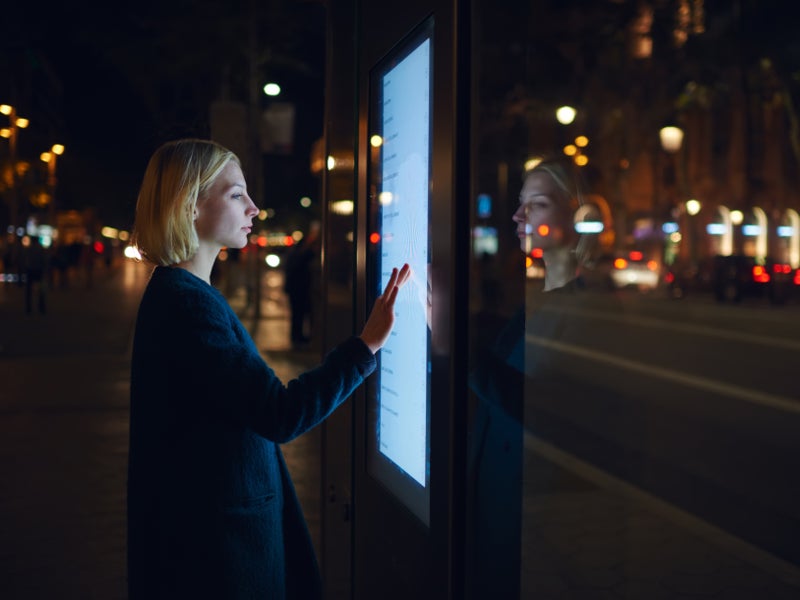By 2050, the challenges facing humanity will be lost or won in cities. By then, nearly 70% of the world’s population will live in cities, against 50% now. Increased urbanisation is already causing infrastructure headaches for cities which will only get worse. This is driving the creation of smart cities, a market that will be worth $833bn by 2030, according to GlobalData estimates.
Listed below are the top technology trends in smart cities, as identified by GlobalData.
Cyber threats
Smart cities increase the perceived risk of cyberattacks on critical infrastructure. Over 40 US towns and cities suffered attacks in 2019, with Baltimore a notable casualty. It was attacked through ransomware, which shut down the majority of the city’s servers and some government applications. The increasing connectedness within smart cities means that the impact of attacks could be devastating. Atlanta was attacked in 2018 and found putting things right to be expensive. A not-for-profit initiative, Securing Smart Cities, hopes to increase collaboration between cities, companies, governments, other not-for-profit initiatives, and individuals around the world as a defense against cyberattacks.
Digital twins
There is plenty of noise about digital twins becoming a crucial tool of a smart cities. A digital twin is a digital representation of a physical asset that promises a single source of the truth. They can be combined to build an in-depth view of entire systems. This covers everyting from traffic to the impact of construction and roadworks. Singapore is one of the most advanced adopters of digital twins. Industrial automation vendors will continue to promote their view of why their product is the first-born digital twin. 2020 will see more companies announce a greater return on investment (ROI) on digital twin projects.
The risks and opportunities of AI
AI and ML adoption will bring both risks and opportunities for smart cities, but few are ready for the societal impact of either technology. A September 2019 study by the Oliver Wyman Forum analysed 105 cities worldwide using four criteria: the quality of their planning and preparation for the impact of AI; the ability to execute; the quality of talent and education; and the city’s overall momentum. The forum examined 250 city vision and planning documents and found that most cities do not address major societal changes driven by AI and other technologies. They focus on smart city developments and on opportunities, but mainly ignore or downplay risks. Singapore was rated the best prepared, most notably in its understanding of AI risks. London followed, while New York, San Francisco, and Paris rounded out the top five.
Legal disputes slow 5G rollout
5G connectivity is being talked up as the catalyst that will create smarter cities. It is faster than 4G, has wider data bandwidth, and lower latency which should positively impact the digital experience. Yet 5G take-up has been patchy. There has been traction in Asia, notably in South Korea, but progress in some parts of the US and in European cities has been slower. The US Federal Communications Commission (FCC) has tried to ramp up local city adoption, accelerating approval times and capping the fees cities can charge telecoms companies to install small 5G cells on city-owned lampposts, traffic signals, or other street furniture. However, in August 2019 the US Court of Appeals unanimously ruled against aspects of the FCC’s plan to speed up deployment of 5G infrastructure.
Greater interoperability
Smart cities with ambitions to improve services such as traffic management, air quality, and city planning will rely on interoperable IoT, but that won’t happen quickly and no single city will drive an evolving standard. City networks have evolved bit by bit rather than being designed. Somehow, against the odds, the networks work effectively, but not as efficiently as they should. The challenge for cities is to integrate older data into cloud services, introduce mobility, waste management, energy, air pollution, social services, and e-health solutions, manage a ‘babel’ of data storage protocols, and grow departmental collaboration, all with constant downward pressure on budgets
Surveillance tech
A September 2019 report by the Carnegie Endowment for International Peace found that at least 75 countries around the world, from the US to Brazil, Germany, India, and Singapore, are now using AI tools, including computer vision, to monitor citizens’ activities. Huawei’s technology is most used, by 50 countries, with IBM’s used by 11 nations. There is a strong possibility of a backlash against smart city technology if citizens believe a surveillance culture is being implemented, using the threat of crime or terrorism as an excuse.
This is an edited extract from the Smart cities – Thematic Research report produced by GlobalData Thematic Research.








